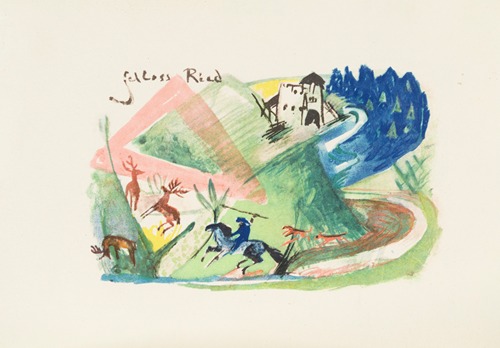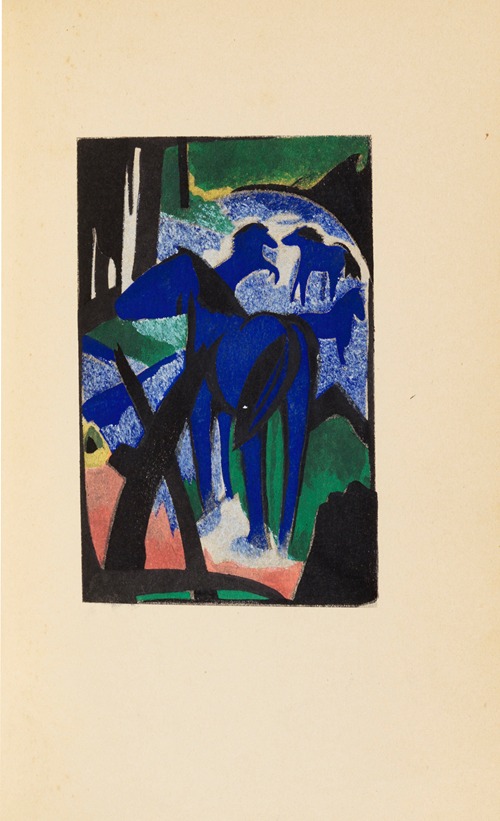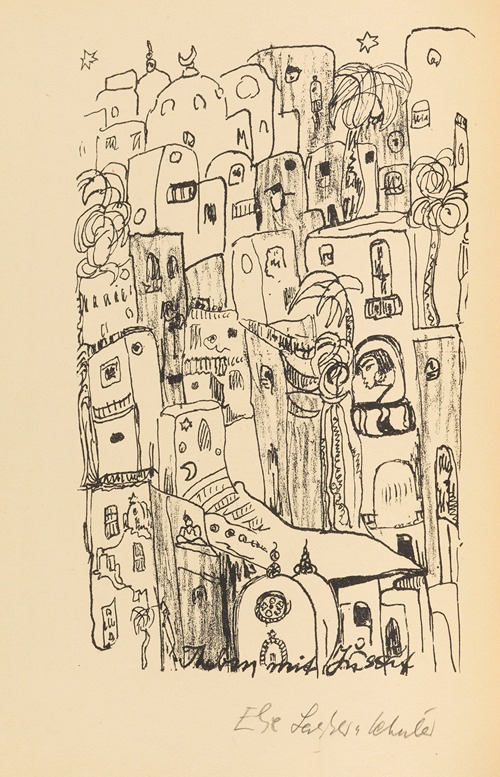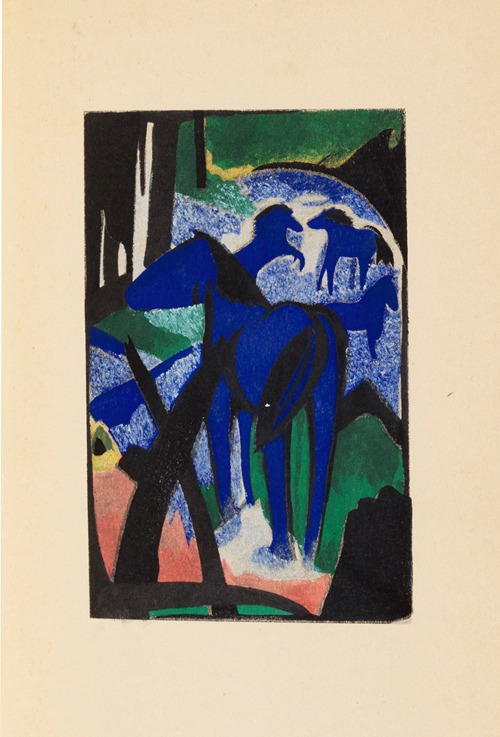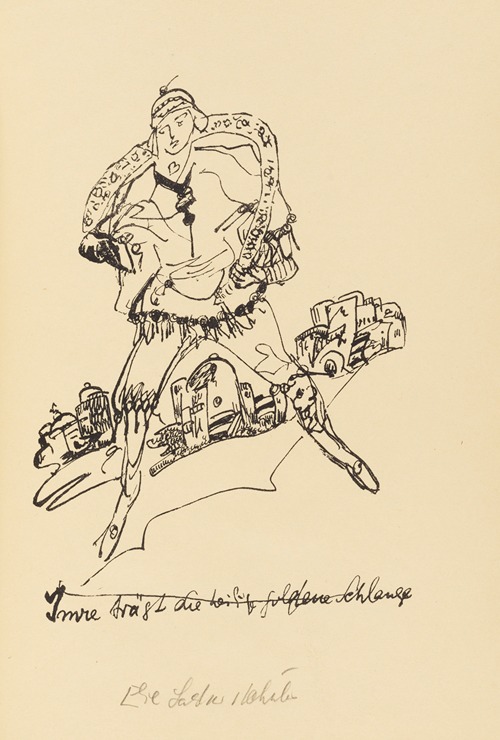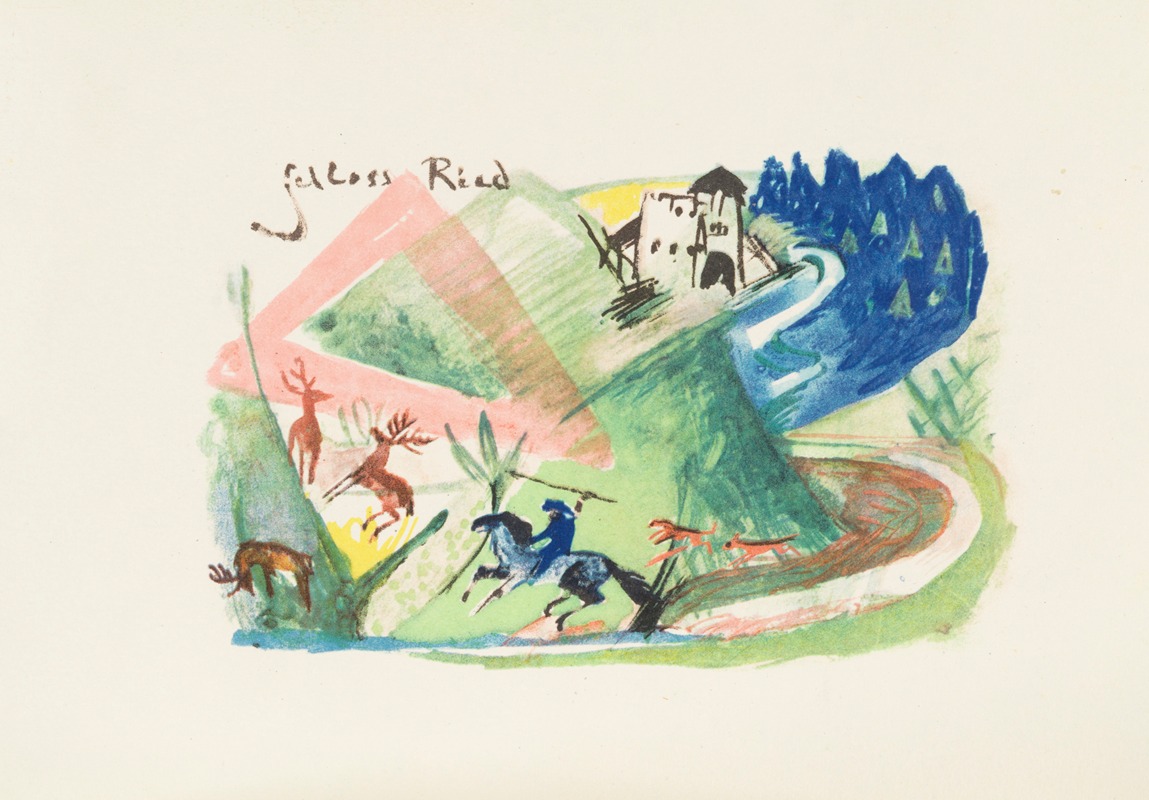
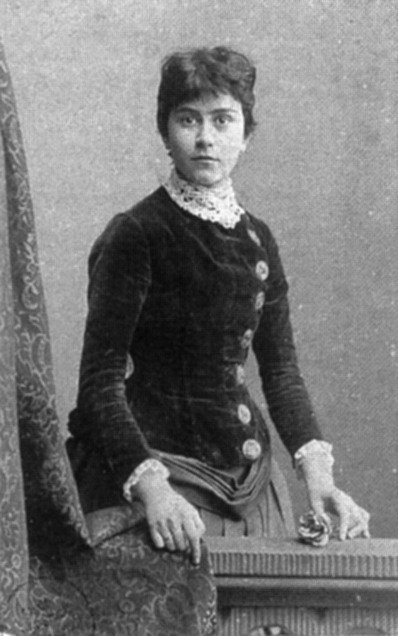
Else Lasker-Schüler (née Elisabeth Schüler) was a German poet and playwright famous for her bohemian lifestyle in Berlin and her poetry. She was one of the few women affiliated with the Expressionist movement. Lasker-Schüler, who was Jewish, fled Nazi Germany and lived out the rest of her life in Jerusalem.
Schüler was born in Elberfeld, now a district of Wuppertal. Her mother, Jeannette Schüler (née Kissing) was a central figure in her poetry; the main character of her play Die Wupper was inspired by her father, Aaron Schüler, a Jewish banker. Her brother Paul died when she was 13.
Else was considered a child prodigy because she could read and write at the age of four. From 1880 she attended the Lyceum West an der Aue. After dropping out of school, she received private lessons at her parents' home.
In 1894, Else married the physician and chess master Berthold Lasker (the elder brother of Emanuel Lasker, a World Chess Champion) and moved with him to Berlin, where she trained as an artist. On 27 July 1890 her mother died, her father followed 7 years later. On 24 August 1899, her son Paul was born and her first poems were published. She published her first full volume of poetry, Styx, three years later, in 1902. On 11 April 1903, she and Berthold Lasker divorced and on 30 November, she married Georg Lewin, artist, and founder of the Expressionist magazine Der Sturm. His pseudonym, Herwarth Walden, was her invention.
Lasker-Schüler's first prose work, Das Peter-Hille-Buch, was published in 1906, after the death of Hille, one of her closest friends. In 1907, she published the prose collection Die Nächte der Tino von Bagdad, followed by the play Die Wupper in 1909, which was not performed until later. A volume of poetry called Meine Wunder, published in 1911, established Lasker-Schüler as the leading female representative of German Expressionism.
After separating from Herwarth Walden in 1910 and divorcing him in 1912, she found herself penniless and dependent on the financial support of her friends, in particular Karl Kraus. In 1912, she met Gottfried Benn. An intense friendship developed between them which found its literary outlet in a large number of love poems dedicated to him.
In May 1922 she attended the International Congress of Progressive Artists and signed the "Founding Proclamation of the Union of Progressive International Artists".
In 1927, the death of her son sent her into a deep depression.
Despite winning the Kleist Prize in 1932, as a Jew she was physically harassed and threatened by the Nazis. She emigrated to Zürich but there, too, she could not work and subsequently went to British-ruled Palestine in 1934, and finally settled in Jerusalem in 1937. In 1938 she was stripped of her German citizenship and the outbreak of World War II prevented any return to Europe.
According to her first Hebrew translator, Yehuda Amichai, she lived a life of poverty and the children in the neighborhood mocked her for her eccentric dress and behavior.
She formed a literary salon called “Kraal,” which philosopher Martin Buber opened on 10 January 1942 at the French Cultural Center.
Some leading Jewish writers and promising poets attended her literary programs, but Lasker-Schüler was eventually banned from giving readings and lectures because they were held in German. She begged the head of the German synagogue in Jerusalem to let her use his Gotteshaus ('house of worship, lit. 'house of God') one more time:
"Wherever I was, German is not allowed to be spoken. I want to arrange the last Kraal evening for a poet who is already broken, to recite from his translations [into German] of a great Hebrew" (Letter to Rabbi Kurt Wilhelm, Else Lasker-Schüler Archive, Jerusalem, cited in Bauschinger, p. 270).
In her final years, Lasker-Schüler worked on her drama IchundIch (IandI), which remained a fragment. She finished her volume of poems, Mein Blaues Klavier (1943, "My Blue Piano"), printed in a limited edition of 330 copies.
Her literary farewell became her last attempt to overcome loneliness. Significantly, she dedicated the work to "my unforgettable friends in the cities of Germany and to those, like me, exiled and dispersed throughout the world, in good faith." In one of her final acts, she asked that her hometown of Wuppertal and its surrounding area be spared from Allied bombing."
She tended to spend whatever money she had all at once which made her go for days without food or shelter. Heinz Gerling, secretary of the Hitachdut Olei Germania (Association of Immigrants from Germany, later renamed to cover all of Central Europe) and the poet Manfred Sturmann [de] came to her aid. Gerling opened a bank account for her and arranged for regular payments to cover her expenses whereas Sturmann edited her work and helped with her dealings with publishers. After her death, Sturmann became the trustee of her legacy and during the 1950s and 1960s dealt extensively with publishers in East and West Germany, Switzerland and Austria who wished to publish her works.
In 1944, Lasker-Schüler's health deteriorated. She suffered a heart attack on 16 January, and died in Jerusalem on 22 January 1945. She was buried on the Mount of Olives Jewish Cemetery.
